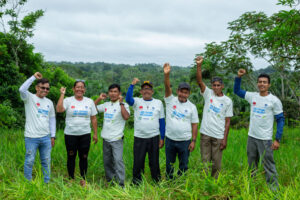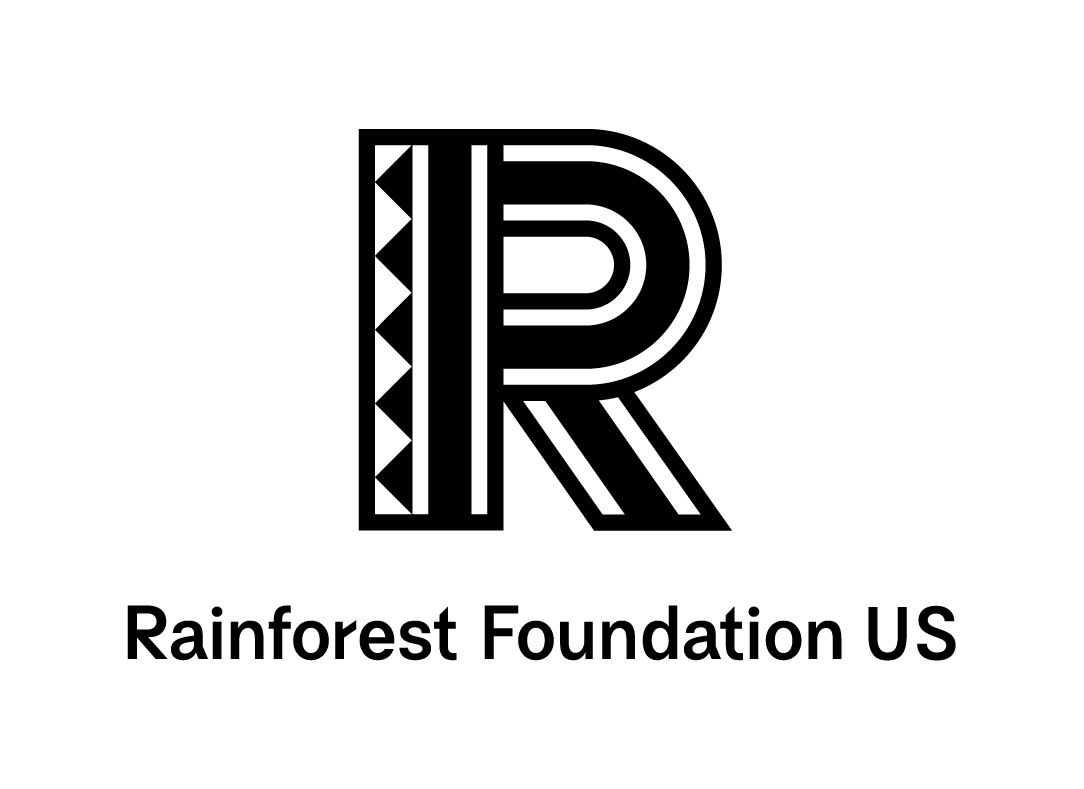- In the Peruvian Amazon, Rainforest Foundation US supports Indigenous women through affirmative policies in community leadership and education.
- These initiatives include ensuring childcare during meetings, providing technology training, and promoting women’s roles in environmental monitoring and decision-making.
- RFUS conducted a study in Ucayali and Loreto, Peru, to evaluate women’s participation in work relating to environmental technology.
Even before she ever attended school, Betty Rubio remembers her grandmother being the first to teach her respect for the forest. “I would sit with her from a young age. She would tell me what nature was like when she was my age, and why it had been disappearing,” says the former president of the Federation of Native Communities of Medio Napo, Curaray, and Arabela in the Loreto region of the Peruvian Amazon.
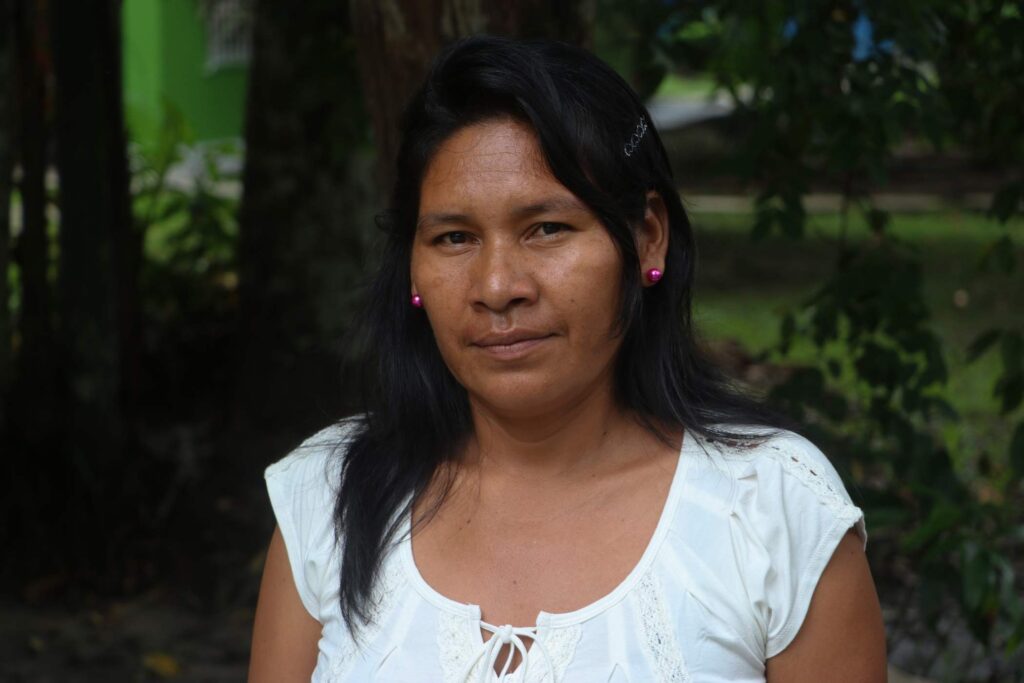
“I would sit with her, [my grandmother], from a young age. She would tell me what nature was like when she was my age, and why it had been disappearing.”
Betty, a Kichwa leader and monitoring technology specialist, says her grandmother’s teachings were not unusual: It is often women who pass along the majority of useful knowledge from generation to generation, from how to care for a plant to how to save a life. So, she wondered, why are there so few women in the assemblies and decision-making spaces in her community?
The story is much the same in the Lower Amazon Basin. “I am a craftswoman thanks to them,” says Rubila Samuel, an Indigenous Ticuna woman. Weaving is one of the many things Rubila learned from her mother and grandmother. But similar to the Kichwa communities in Napo, women in Ticuna communities have been traditionally excluded from leadership decisions, a challenge Rubila experienced firsthand. “When my children were small, I couldn’t participate [in meetings] sometimes because my children were fussing,” Rubila explains.
To address these issues, Rainforest Foundation US (RFUS) conducted a study in 2021 in Ucayali and Loreto province in Peru to evaluate women’s participation in work relating to environmental technology. The result showed that there were significant gaps in women’s participation—too much housework and lack of childcare support were the primary reasons cited.
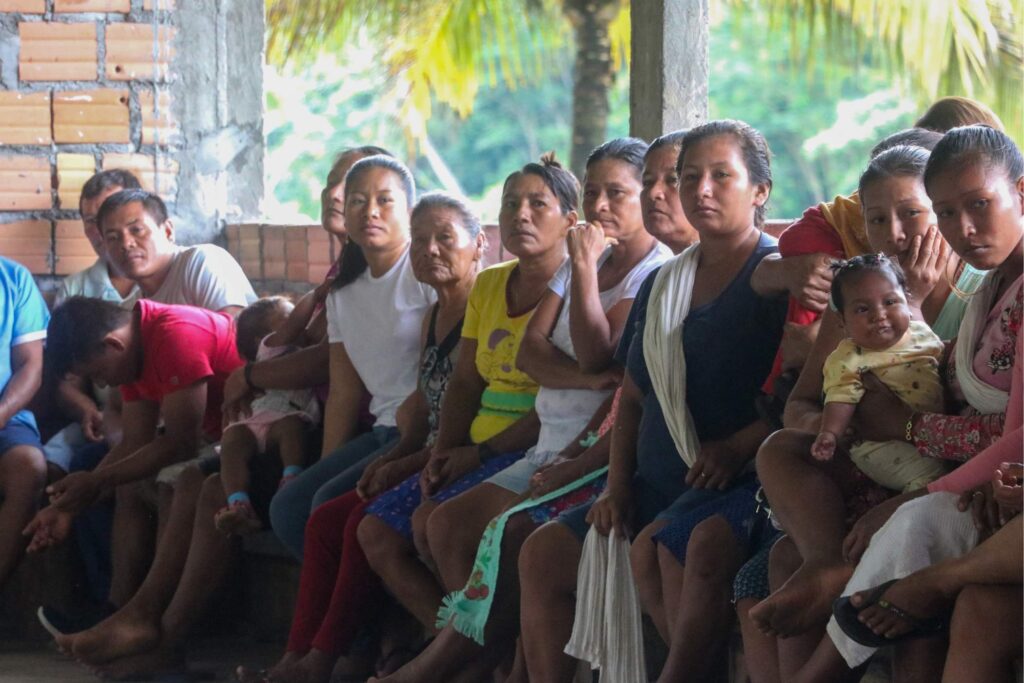
“There is also a lot of stigma around what a woman should do within the community. Fieldwork was considered men’s work. Women’s participation was frowned upon.”
“There is also a lot of stigma around what a woman should do within the community. Fieldwork was considered men’s work. Women’s participation was frowned upon,” adds Kathya Castillo, the gender and inclusion specialist at RFUS Peru.
With this in mind, the RFUS Peru team launched the Affirmative Measures Project with the aim of promoting equality and enhancing learning opportunities.
The project’s first steps were to establish an itinerant system of childcare designed to run parallel to meetings and training. “This way, women can participate in the technology training and feel confident that their children are being cared for,” explains Kathya.
Initially launched in just a handful of communities, the program is now active in over 54 communities across the Peruvian Amazon and has become, in its own right, an important vehicle for knowledge transfer.
“With the older ones, we can talk about the forests, how they see the trees, the plants, the animals, and why they must be cared for,” says Rubila, who coordinates the nursery program in communities throughout the Lower Amazon Basin. “Now, when we arrive at the communities, they start shouting, ‘Auntie, Auntie Rubila is coming!’ We are well received because they know we come to share these teachings.”
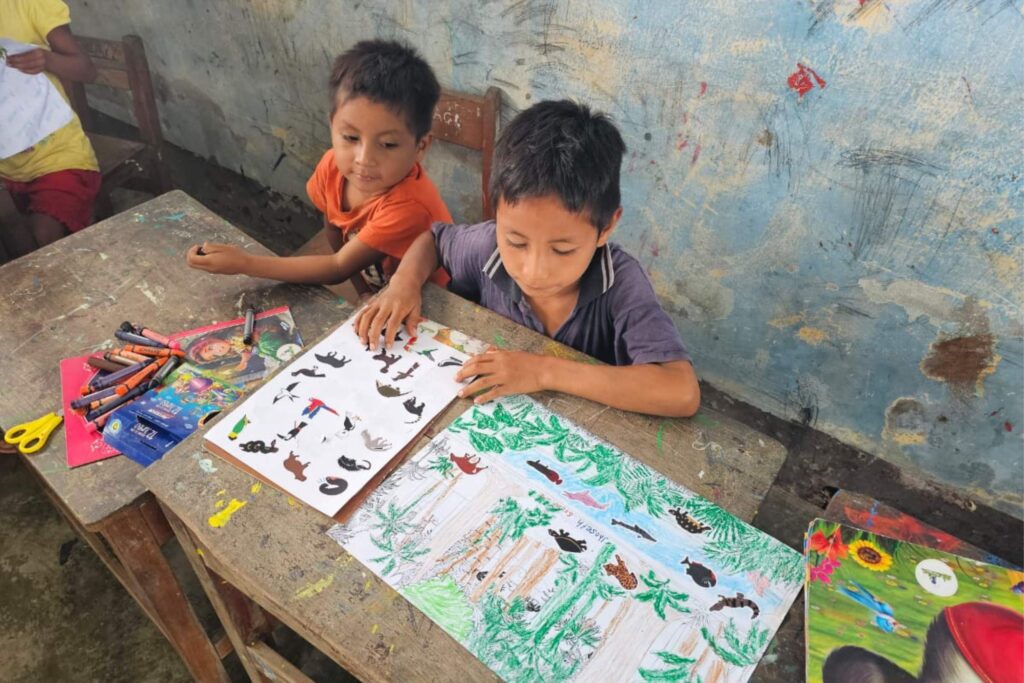
Meanwhile, RFUS-designed educational materials encourage the children to name plants and animals in their own languages and to identify signs of a healthy habitat for each. “The nurseries are important places to reinforce this bond with nature,” Kathya says, in addition to providing new opportunities for mothers. “We consider it an intergenerational measure.”
It is also an opportunity for women to build greater economic independence. “Sometimes, I can cover expenses with my income as a caregiver. Or I can also help my children,” Rubila says.
Other affirmative measures aim to bridge the gender and age gap by implementing technology training for all community members; men, women, and elders included. Additionally, the project encourages forest monitoring activities to be carried out in pairs, fostering familial engagement in environmental initiatives. These efforts not only enhance women’s active involvement in community affairs but also contribute to combating gender-based violence and stigma.
“It is women who will allow more women to excel.”
Betty knows from her former years as a pioneering president of an Indigenous federation what ripple effect these measures can have. “It is women who will allow more women to excel,” she affirmed.
“Once you start seeing more women in authority roles, it becomes more normal,” says Rubila.


